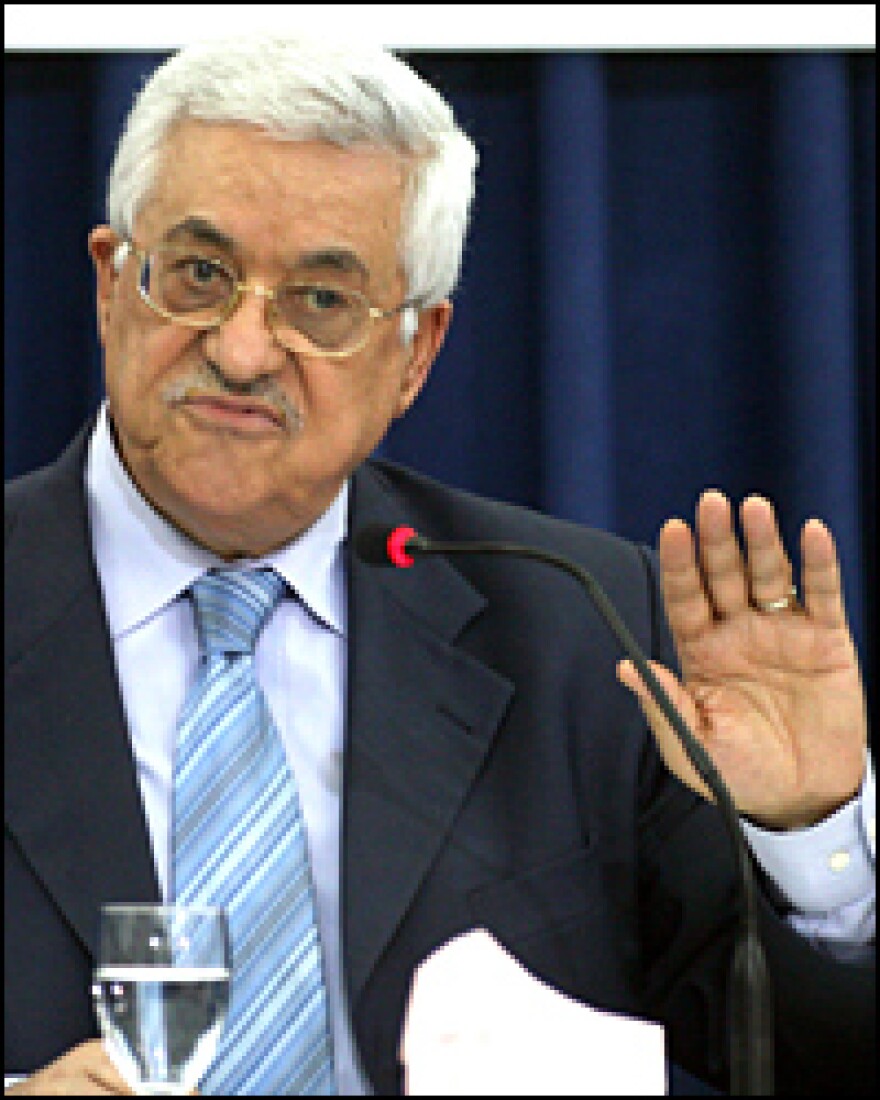

Palestinian President Mahmoud Abbas lashed out at Hamas on Wednesday, calling the movement "murderous terrorists" who had targeted him for assassination.
Israeli warplanes and tanks, meanwhile, hit targets in northern Gaza. At least four Palestinians were killed, officials said.
Israel's Defense Minister Ehud Barak also ordered that any of the hundreds of Palestinians holed up at a Gaza border crossing should be allowed to enter the Jewish state if they need medical treatment.
In an uncharacteristically fiery televised speech, Abbas said Hamas replaced the "national project" with "its project of darkness."
"There is no dialogue with those murderous terrorists," Abbas said, accusing them of attempting a coup. It was Abbas' toughest speech since he fired the Hamas-led Cabinet and replaced it with his own team of Fatah supporters and experts over the weekend.
"Our main goal is to prevent sedition from spreading to the West Bank, ... to prevent violations by any party, and to deal (with everyone) equally, based on law," he said.
In a lightning military-style operation last week, Hamas militias routed the numerically superior Fatah security forces and took over their bases, leaving Abbas' Fatah in control only of the West Bank.
Abbas said that despite the turmoil, peace talks with Israel should resume.
"The atmosphere is not preventing a start to negotiations," he said, adding that he hoped the international community, including the Quartet of Mideast mediators, would convene an international peace conference that can lead to negotiations between the Palestinians and Israel.
Defense Minister Barak on Wednesday instructed officials to let in "humanitarian cases" at the crossing between Gaza and Israel, while Israeli aircraft fired missiles at two rocket launchers in northern Gaza, in the first aerial attack on the strip since Hamas' takeover.
Israeli tanks also rolled about 600 yards inside southern Gaza before dawn, and four militants were killed in a gunbattle, Palestinian hospital officials said.
About 200 Gazans, petrified by the chaos in the Hamas-controlled coastal strip, have been camped out for six days in a tunnel on the Palestinian side of the Erez crossing with Israel, pleading with Israeli authorities to grant them safe passage to the West Bank.
Hamas seized control of Gaza last week after vanquishing security forces allied with the rival Fatah faction, leaving many Gazans worried about further violence. Some in the tunnel fear their lives are in danger because of their Fatah loyalties; others seek a better life than volatile Gaza can offer.
Among their numbers are people wounded in gunbattles between the rival factions.
With no sanitary facilities at the tunnel, the stench of urine and sweat has permeated the air. Food and water were in short supply as women, children and young men sat waiting on mats or concrete.
No numbers were specified, and specific guidelines for determining urgency were not released. But shortly after the order was issued, a 17-year-old boy with leukemia was on his way through the passage, said Shadi Yassin, a military liaison official.
On Tuesday, Israel allowed in two Palestinians wounded in a shootout at the terminal the previous day. Three other people hospitalized in Gaza in the course of Hamas-Fatah infighting last week also were allowed to pass.
Hamas' takeover of Gaza led Israel to seal its borders.
Israel, which has sophisticated weapons screening equipment in place at Erez, says it is letting through only the staff of international organizations, people with special permission and humanitarian cases. Military officials say they don't think all of the people in the tunnel are in danger.
Israeli military spokesman Shlomo Dror said Wednesday any foreign national wishing to leave Gaza was allowed to do so in coordination with their embassy.
More than 100 foreigners have left Gaza since Hamas seized full control there last week, Dror said. He did not specify their nationalities. Three buses carrying foreigners left the Erez crossing from Gaza into Israel on Wednesday.
From The Associated Press
Copyright 2023 NPR. To see more, visit https://www.npr.org.



